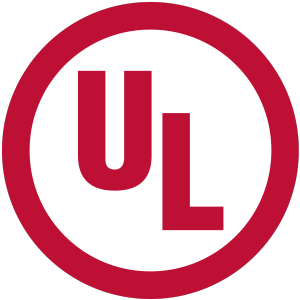3-A Sanitary Certifications and Standards
“3-A SSI is an independent, not-for-profit corporation dedicated to advancing hygienic equipment design for the food, beverage, and pharmaceutical industries. Also, the 3A is another Certifications and Standards. In Conclusion, we represent the interests of three stakeholder groups with a common commitment to promoting food safety and the public health — regulatory sanitarians, equipment fabricators and processors.”
Learn more about 3-A Sanitary Certifications General Guidelines here.
If you require any documentation with your purchase please do not hesitate to ask upon order placement. |
|
|
ASME Standard
“ASME is another Certifications and Standards. It is the leading international developer of codes and standards associated with the art, science, and practice of mechanical engineering. Hence, starting with the first issuance of its legendary Boiler & Pressure Vessel Code in 1914, ASME’s codes and standards have grown to nearly 600 offerings currently in print. In Conclusion, these offerings cover a breadth of topics, including pressure technology, nuclear plants, elevators / escalators, construction, engineering design, standardization, and performance testing.” Read More |
|
|
NSF Certification
Recognized by regulatory agencies at the local, state, federal and international level, NSF certification is another Certifications and Standards that demonstrates that a product complies with all standard requirements. Also, NSF conducts periodic facility audits and product testing to verify that the product continues to comply with the standard. The NSF mark is your assurance that the product has been tested by one of the most respected independent certification organizations in existence today. It is valued by consumers, manufacturers, retailers and regulatory agencies worldwide. Also, the NSF certification mark on a product means that the product complies with all standard requirements. NSF conducts periodic unannounced inspections and product testing to verify that the product continues to comply with the standard. The mark also provides:
In Conclusion, the NSF’s programs include testing and certifying drinking water treatment products and water filters, commercial food service equipment. It is also in a wide array of consumer products such as bottled water, nutritional supplements, private label goods, personal care items and home appliances (washers, dryers and dishwashers). |
|
|
FM Approval
FM approvals is another Certifications and Standards. It is the independent testing arm of international insurance carrier, FM Global. It also uses scientific research and testing to make sure products conform to the highest standards for safety and property loss prevention. Products that pass get the “FM APPROVED” mark. Think of it as like the Good Housekeeping seal of approval, only better. Furthermore, here’s what FM approvals focuses on:
FM approvals follows these five steps to make sure the products they’re testing meet quality guidelines:
|
|
UL Standards Approval

UL Standards encompass UL’s extensive safety research and scientific expertise. With over a century of experience in the development of more than 1,500 Standards, UL is an accredited standards developer in the US and Canada. In extending its global public safety mission, UL Standards partners with national standards bodies in countries around the world to build a safer, more sustainable world. UL Standards are developed under a process that provides for participation and comment from the affected public as well as industry. Also, the process takes into consideration a survey of known existing standards and the needs and opinions of a wide variety of interests concerned with the subject matter of the standard. Manufacturers, consumers, government officials, industrial and commercial users, inspection authorities and others provide input to UL. For further details, visit Develop Standards on the UL Standards web pages. Also, to find out about participating in UL’s Standards Development program, visit the UL Standards web pages: About – For information about UL Standards and how standards are developed.
STPs – Information about UL’s Standards Technical Panels (STP) process, a list of each STP and the standards covered by each STP, and how to apply for membership on an STP. |
